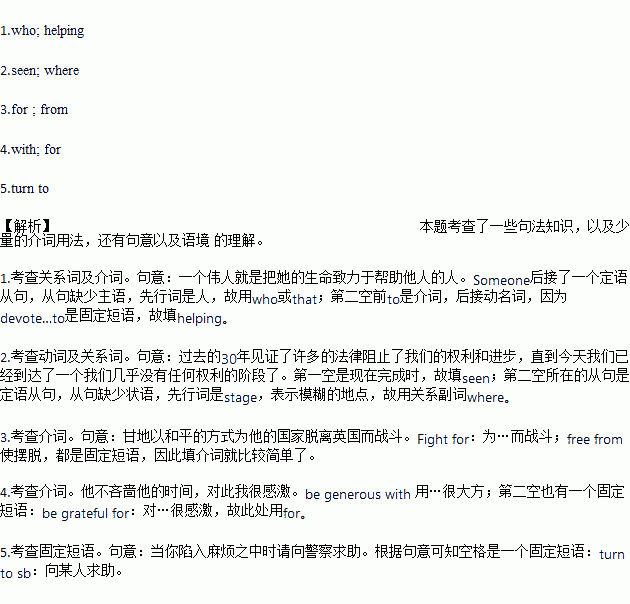题目内容
1.A great person is someone________ devotes his or her life to __________ (help) others.
2.The last thirty years have ________ (see)the greatest number of laws stopping our rights and progress, until today we have reached a stage _________we have almost no right at all.
3.Mohandas Gandhi fought _______ his country to be free ______ the UK in a peaceful
4.He was generous _______ his time, _______ which I was grateful.
5.Please_____ _____ the police for help when you are in trouble.
练习册系列答案
 名校课堂系列答案
名校课堂系列答案
相关题目


 , which of the following is wrong?
, which of the following is wrong?